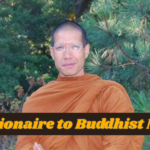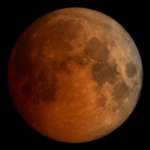With songs like “Margaritaville” and “Cheeseburger in Paradise,” he became a folk hero for fans known as Parrotheads. He also became a multi-millionaire many times over.
Jimmy Buffett, a singer, songwriter, author, sailor, and entrepreneur, whose brand of escapism from island-themed hits like “Margaritaville” and “Cheeseburger in Paradise” made him a folk hero in later years, especially among his dedicated followers known as the Parrotheads, passed away on Friday. He was 76 years old.
The announcement of his death was made in a statement on his website. It did not specify where he passed away or provide a cause of death. Mr. Buffett had rescheduled a series of music events this spring, saying he had been hospitalized, though he gave no details.
Filled with sea pirates, rogues, beach bums, and escapism, Mr. Buffett’s breezy, self-deprecating songs created a world of nonstop parties inspired by the sun, saltwater, and his Coral Reefer Band’s calypso country-rock. His live shows were packed with solo songs and festive tropical imagery, making him a perennial attraction on the summer concert circuit, where he cultivated an enthusiastic fan base akin to the Deadheads of the Grateful Dead.
Jimmy Buffett Loving grooves and clever wordplay :-
Mr. Buffett’s success primarily came from his albums. He enjoyed a brief pop-chart run with singles like “Margaritaville” and his 1977 hit, his only pop top 10 single.
“I blew out my flip-flop/Stepped on a pop-top/Cut my heel, had to cruise on back home,” he sang in a sweet Caribbean lilt. “But there’s booze in the blender/And soon it will render/That frozen concoction that helps me hang on.”
Mr. Buffett’s music was often described as “Gulf and Western” – a nod to Paramount Pictures’ former parent group, Gulf and Western, as well as a reference to his laid-back twang and the mix of island themes in his lyrics.
His songs came in two main flavors: mournful tunes like “Come Monday” and up-tempo numbers like “Cheeseburger in Paradise.” Some were both, like “Son of a Son of a Sailor,” a 1978 tribute to Mr. Buffett’s grandfather, who was a sailor, written with producer Norbert Putnam.
Adored by his ‘Parrotheads’ :-
“I’m just a son of a son, son of a son, son of a sailor,” he sang. “The sea’s in my veins, my tradition remains/I’m just glad I don’t live in a trailer.”
The Caribbean and coastal shores were Mr. Buffett’s attractions, and there was no more important place than Key West, Florida. He first visited the island on the advice of Jerry Jeff Walker, a songwriter and drinking buddy who, after a show, encouraged him to spend some time writing songs in the early 1970s. Miami in the early 1970s.
Mr. Buffett told The Washington Post in a 1989 interview, “Until I got Key West and the Caribbean, I really hadn’t been successful.” “But I got a lifestyle, and I knew whatever I did was going to be in tune with my lifestyle.”
Certainly! Here’s the translation of the provided Hindi content into English in a friendly tone:
Local folks didn’t just provide Jimmy Buffett with a laid-back boating life and inspiration for his songwriting; they offered much more. He was also an inspiration for building a tropical-themed business empire, including a restaurant franchise, a hotel chain, and lines of tequila, T-shirts, and shoes, all of which made him a multimillionaire many times over.
In “A Pirate Looks at Forty,” he sang about his early days in Key West, Florida, dealing marijuana. “I’ve done a bit of smuggling, and I’ve cut my share of grass,” he reminisced.
“I made enough money to buy Miami,” he indicated, pointing toward his later entrepreneurial endeavors. “But I pissed it away so fast/Never meant to last/Never meant to last.”
Despite his claims of squandering his wealth, Jimmy Buffett, for the most part, proved to be a savvy manager of his substantial fortune. Forbes has estimated his net worth at 1 billion dollars this year.
Critic Anthony DeCurtis wrote in a 1999 essay for The New York Times, “If Mr. Buffett is a sea pirate, then the episode that is perhaps least likely to be included in his favorite images is probably the result of his days spent with dope smugglers in the Caribbean.” “He’s a pirate in the sense that Bill Gates and Donald Trump have styled themselves as pirates, artists of the deal who are not bound by the social prohibitions that tie down smaller, more cautious people.”














